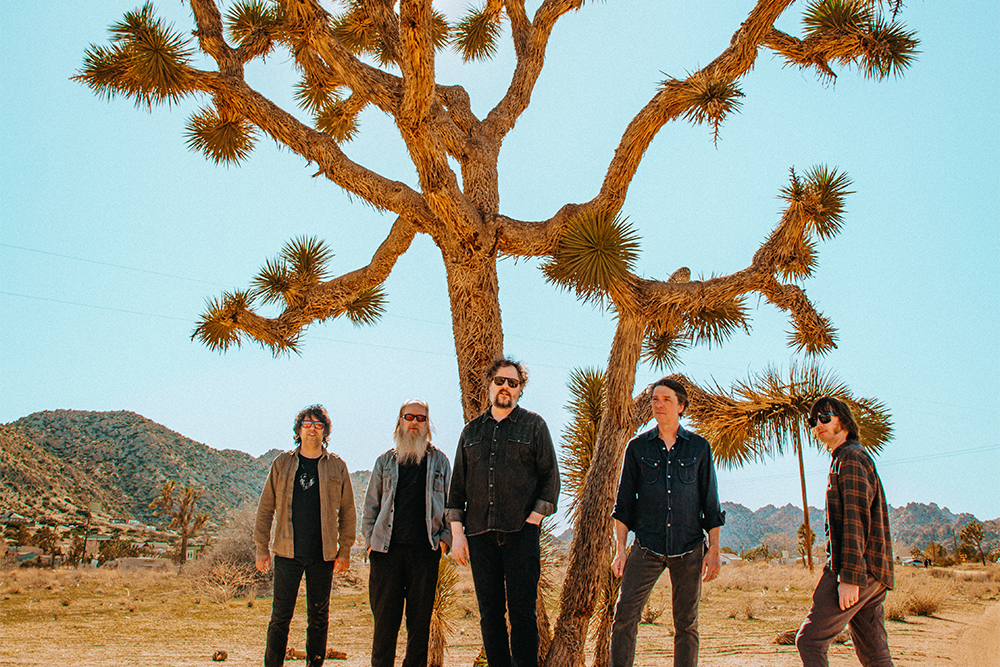Though the Drive-By Truckers may be considered a neo-Southern rock band, having adopted the sound decades after its heyday in the ’70s, a slight perspective change reveals them as the ultimate expression of the form. For it was with their albums that the genre evolved, like some advanced computer mainframe, into self-awareness. Sure, you can find traces of irony in classic Skynyrd, but when the Truckers came along at the turn of the 20th century, their songs suggested a deeper awareness of the South’s fraught history and contradictions.
The songs of band co-founder Patterson Hood expressed that awareness more and more as their albums advanced. In 2015, railing in a New York Times op-ed against fans who flew Confederate flags at Drive-By Truckers shows, he wrote of growing up with his father, renowned Muscle Shoals bassist David Hood, whose “views on the Civil Rights era were shaped by the time he spent playing with Aretha and the Staple Singers. He looked at George Wallace and Bull Connor with great disdain.” But while many young, progressive Southerners fled to bluer regions, the Truckers stayed in the fight, both rocking out and writing dispatches from the front lines of the culture wars as they witnessed them personally.
A quarter-century after they started, with America more divided than ever, the band’s head-on confrontation with those culture wars seems prescient. It’s no wonder they’ve continued to thrive, with an album of new songs released only last year and a new reissue of their 20-year-old classic, The Dirty South, revealing how on-point they were from the start. On the eve of the Drive-By Truckers’ October 7th show in the Overton Park Shell’s Shell Yeah! series, I spoke with Hood about how the band’s tales from deepest, darkest Dixie still resonate today.
Memphis Flyer: The songs of poverty, desperation, and corruption in the Truckers’ early work still ring true today. Though those songs were very much located in the South, do you feel they express something about our country as a whole?
Patterson Hood: I’m afraid what’s really happened is that some of the worst aspects of the historical Old South have become just part of America. The South did kind of rise again, in the worst of ways. I mean, the parallels between Donald Trump and George Wallace are huge. Though I think Wallace would be mortified with how bad Trump is. And I say that as someone who’s spent my entire life hating George Wallace and everything he stood for. But he had once been a progressive-minded person who sold that out in order to get power. With Trump, I don’t think there was even a notion of any kind of Greater Good anywhere in his makeup. That’s a cynical, awful thing.
It’s like the world caught up to your albums. Those things we once attributed to Southern culture are more widespread throughout the country. You moved to Portland some years ago — how does that affect your sense of the South, which is so key to your literary voice?
Portland’s known as one of the most liberal cities in America. But if you drive five minutes in any direction, you might as well be in Alabama. I accidentally got caught up in a Proud Boys rally with my oldest kid. I lived in the South a long time and never really saw a Klan rally, but there’s no difference between a Klan rally and a Proud Boys rally. It’s definitely made me more cynical than ever, and unfortunately less optimistic.
Is that related to the more introspective turn your lyrics took on last year’s Welcome 2 Club XVIII?
Club XVIII was a more personal record. It’s a bit of a reckoning with our paths through the lens of having kids. Now we’re watching our kids navigate the same things we did. I mean, I want my kids to have fun, but I also want them to be careful and not hurt themselves.
The new album also has a Memphis connection, no?
We spent a week in Memphis in 2018 and cut 18 songs, and there were three songs from those sessions that we didn’t want to put on The Unravelling. Those wound up on Club XVIII. And the other singer on that album is Schaefer Llana, and she’s from Memphis. She sings on “Wilder Days” and “The Driver,” and she’s amazing. And she’s a great artist in her own right. I love her records.
Catch the Drive-By Truckers in concert at the Overton Park Shell on Saturday, October 7th, 7:30 p.m. General admission tickets are $30. For more information and to purchase tickets, visit overtonparkshell.org.
